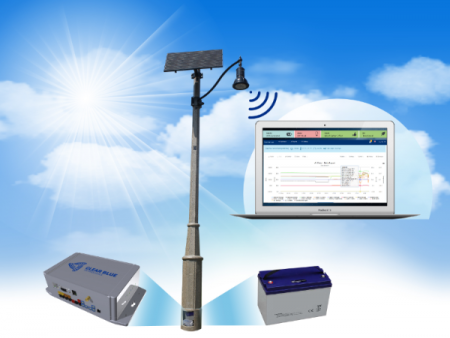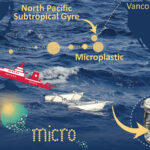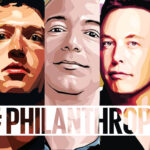December 22, 2017 – The water wheel, windmill and spinning wheel powered the Medieval World. Then steam engines were invented. The 19th century moved from candle-power to electricity, once and for all ending the night on our planet. Spinning turbines attached to generators turned water and steam into electrons flowing down wires bringing power, light, and voice to businesses and homes.
As the 20th century unfolded we witnessed the development of centralized power generation and voice distribution systems operated by utilities with growing networks of wires and transmission towers that first spanned cities, and then entire continents.
The latter half of the 20th century saw the emergence of the computer. Suddenly electrons flowing down wires weren’t limited to just power and voice. Data had joined the mix. And then as the last two decades of the century unfolded, the wires got cut with wireless transmission evolving from radio to telephony and data transmission. And data networks made the Internet possible.
Was all this connectivity evenly distributed across the planet? No. Vast areas of the Developing World, sub-Saharan Africa in particular, continue to remain in the dark. In fact, over one billion on the planet have no access to reliable electricity. Connectivity to the power grid comes at a very high cost.The problem is not limited to Developing World communities. In my country, Canada, more than 200 indigenous communities largely in remote and northern locales remain without access to power from the electrical grid. Instead, they are dependent on diesel generators.
For utilities operating from centrally-located generation facilities, meeting the needs of the disconnected last billion with 20th-century technology remains problematic and costly. And then there is anthropogenic climate change requiring power generators to consider distributed power generation and renewable energy alternatives.
We may be witnessing the beginning of the end for the ubiquitous power grid as the 21st century unfolds. What will replace it? Last week, I went to find out when I visited Clear Blue Technologies, a Toronto, Canada-based company, founded in 2011, whose CEO, Miriam Tuerk sat down with me to talk about the future of electrical power generation and distribution. She and her husband, John, are well versed in understanding the future of the power grid and the role off-grid will play in providing electricity to wireless, standalone applications.
Clear Blue Technologies represents a new generation of companies focused on providing a hardware-software service for off-grid power delivery and management. The company’s technology optimizes power to any off-grid installation requiring a reliable continuous electrical feed. This applies to everything from street lighting to telecommunications towers supporting mobile wireless.
Tuerk’s company has built the world’s first, smart management system for off-grid systems. She uses the word “nano-grid” defining the types of power requirements of these off-grid devices as being in the low kilowatt range, in comparison with microgrid megawatt range.
Tuerk also notes that Clear Blue Technologies is built as a service. So it is not just shipping a product to its customers, but rather, offering management of the energy powering the lights, or the wireless base stations, or other infrastructure requiring off-grid power.
One of its more recent installations in Hamilton, Ontario, received the Canadian Outdoor Lighting Project of the Year award. Clear Blue technology was deployed to manage 40 solar-powered lights. Solar-hybrid controllers mounted on the light poles, connected to remote management software at Clear Blue providing real-time dashboard views of the power to the lights, tracking performance, and flagging and correcting potential disruptions before they happen.
Lighting today poses a particular challenge for cities. It is their number one operating expense and is largely managed through periodic visual inspection neighbourhood by neighbourhood and block by block. United Nations calls for cities to be dark sky compliant will require them to rethink the lighting deployed. Clear Blue’s technology can certainly help through the remote management and monitoring of off-grid light sources turning them off when conditions are appropriate. That is the degree of granularity possible using Illumience, Clear Blue’s cloud-based software application.

Facebook, the social media giant of the Internet, has made Internet connectivity to areas of the world still disconnected, a major initiative of the company. Tuerk describes how Facebook approached her to help in this effort. The social media company identified Clear Blue as the only company today capable of making it possible to deploy and remotely manage thousands of small sites using off-grid energy sources to power up the technology being deployed to connect these remote communities to the Internet.
Clear Blue can do this because of Illumience, its cloud-based open-source compliant software that features continuous remote monitoring, proactive maintenance sending alerts as text or email, predictive weather analysis, and remote changing of off-grid power feeds to match changing local conditions.
Ultimately what Clear Blue is doing today is a reflection of the fundamental change occurring worldwide as more technology becomes powered by off-grid sources in a world increasingly no longer dependent on power over wires. In this new wireless world, energy will be sourced from solar, wind, battery, and other standalone technologies replacing utility-based delivery and leading to the democratization of power generation. It cannot come soon enough for those sites on our planet today that are held back by the lack of reliable, sustainable energy, and Internet connectivity.














